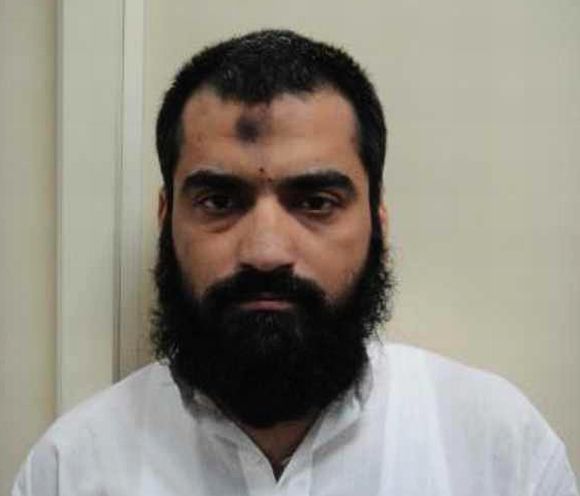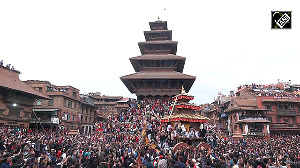It has been four years since the unforgettably tragic 26/11 terror attack on Mumbai, but the Indian government is yet to gets its hands on the voice samples of the attack's masterminds, who are facing trial in Pakistan.
India has filed several chargesheets in connection to the 26/11 attack, but the case put together by security agencies could be much stronger if Indian authorities manage to obtain the voice samples which are the final pieces of evidence in the case.
Pakistan has always insinuated that the evidence put up by India on 26/11 has been cooked up by local agencies.
"It is important that we get our hands on the voice samples certified by Pakistan in order to make out a case that even Islamabad has to act on," an officer of the National Investigation Agency told rediff.com.
India currently needs the voice samples of Zaki-ur-Rehman Lakhvi, Zarar Shah, Abu Jundal, Abu Qama and Sajid Mir -- the terror operatives who were in the control room on that violent night, giving instructions to the attackers on the ground. While Pakistan has finally accepted the role played by almost all these terrorists, they continue to be in denial in the case of Sajid Mir.
According to Jundal, who is in the custody of the Indian police, Mir was present in the control room on the night of the attack and had been handing out instructions.
Pakistani authorities are not even ready to accept the existence of Sajid Mir.
If India does manage to obtain the voice sample of Mir, then the probe can be furthered and Pakistan will be forced to share information about him.
The voice samples of the other accused are required to connect the many links in the case to establish the role played by Pakistan in orchestrating the attacks.
In the various conversations going on in the control room, the names of Major Sameer Ali and Major Iqbal are often mentioned by Lakhvi and Zarar Shah. This proves that there is a direct link between the Inter Services Intelligence, Pakistan Army and the Lashkar-e-Tayiba, sources say.
India's earlier request for voice samples of the 26/11 accused had been rejected by a Pakistani court. India will now seek pre-recorded conversations of these accused and demand that these are certified by Pakistan. Indian agencies believe that Pakistani authorities already have these tapes with them as part of their own investigation.
Voice samples of the accused can only be obtained with their permission, and that is unlikely to happen. The ball is now in Pakistan's court. If Islamabad shares the pre-recorded conversations and also certifies them, then India could complete its case against the 26/11 perpetrators.
An Intelligence Bureau official points out that while Pakistan may hand over pre- recorded conversations, it may find it difficult to certify them. Certifying the voice samples of Mir and Lakhvi is bound to shed light on the role played by the ISI.
India will have to wait for the ruling on the appeal filed by the Pakistan Federal Agency, which has sought to record the voice samples of the accused. This appeal is unlikely to be allowed as Pakistani law clearly states that no voice samples can be taken unless the accused gives his or her consent.
Pakistani authorities are seeking legal consultation before moving forward on the matter.
Islamabad is considering an amendment to its existing laws so that it is no longer mandatory to collect voice samples with the consent of the accused.
"It will be a lengthy procedure but it would be worth the wait if we get what we are looking for," said an official from an Indian agency.










 © 2025
© 2025